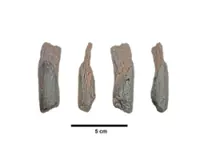IMAGINE the scene: your friend gets stung by a jellyfish, and in response, you pee on him. This “cure” for jellyfish stings, though widely believed for decades, is a myth. Some might still think it offers quick relief while a friend is in agony.
“Urine can make the stings worse for your friend. We don’t really know how this tale came about, but we suspect it could be because people think urine is slightly acidic,” said marine biologist Professor Datuk Dr Aileen Tan.





